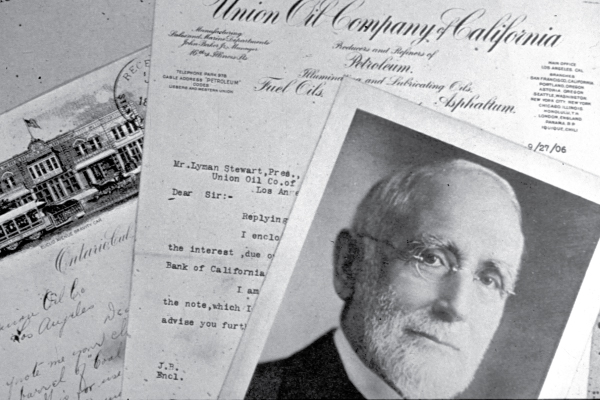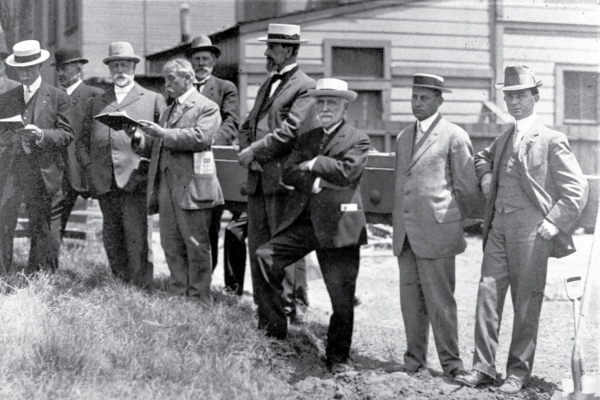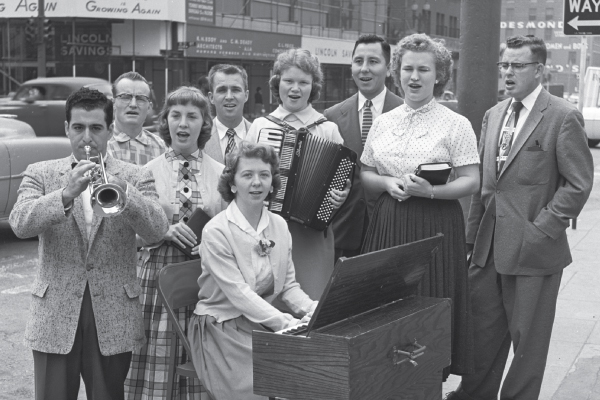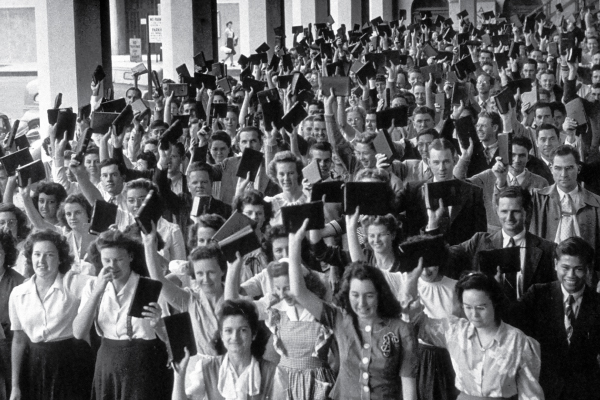History and Heritage




Biola University traces its origins to the Bible Institute of Los Angeles established in 1908 by Lyman Stewart, founder and president of the Union Oil Company, and the Rev. T.C. Horton, two men of extraordinary vision and commitment to Christian higher education.
Dedicated to sharing and defending the Christian faith, Stewart and Horton established the Institute to educate and equip men and women to impact society at home and abroad with the truth of the gospel. The Institute’s influence was felt along the entire Western Seaboard from Mexico to Canada and across the Pacific to China. By 1909, over 540 extension courses were sponsored by the Bible Institute. In 1912, the school had grown sufficiently in its outreach and constituency to call R.A. Torrey, a leader in the field of Christian education, as its dean.
The cornerstone of the original Bible Institute building in Los Angeles was laid on May 31, 1913, and dedicated with these words from Stewart:
“For the teaching of the truths for which the Institute stands, its doors are to be open every day of the year, and all people, without reference to race, color or class will ever be welcome to its privileges.”
The following decades produced immense growth, development and outreach. Under the leadership of Dr. Louis T. Talbot, president from 1932 to 1935 and 1938 to 1952, the school moved from a two-year to a four-year program offering degrees in theology, Christian education and sacred music, and a one-year program in missionary medicine. By 1949, the Bible Institute expanded to include a Bible college and in 1952 launched Talbot Theological Seminary to further serve the Christian community. Under Dr. Samuel H. Sutherland, who became president in 1952, the college continued to grow in size, programs and reputation. The demands imposed by the growing student body and the enlarged curriculum prompted the purchase of a 75-acre site in La Mirada in 1959, the same year it received accreditation from the Western Association of Schools and Colleges.
In the ensuing years, Biola College broadened its curricula in the arts, sciences, professions and seminary offerings while maintaining its strong foundation in biblical studies. Dr. J. Richard Chase became Biola’s sixth president in 1970, and continued to expand the program base, acquiring the Rosemead Graduate School of Professional Psychology in 1977.
Biola College became Biola University on July 1, 1981, composed of the School of Arts and Sciences, Rosemead School of Psychology and Talbot School of Theology. A year later, in 1982, Dr. Clyde Cook became the seventh president. The School of Intercultural Studies, with its outstanding program in world missions, was established in 1983 and renamed the Cook School of Intercultural Studies in 2009. The School of Business was added in 1993 and renamed the Crowell School of Business in 2007. The School of Education was added in 2007. On May 11, 2007, the Board of Trustees selected the university’s eighth president, Dr. Barry H. Corey, to lead Biola into its second century.
Today, eight schools
comprise the university: Rosemead School of Psychology, Talbot School of Theology, Crowell School
of Business, Snyder School of Cinema & Media Arts, the School of Education, the School of Fine Arts and Communication, the School of
Humanities and Social Science, and the School of Science, Technology and Health.
Ranked by the Carnegie Commission on Higher Education as a Doctoral/Research-Intensive Institution, Biola University offers more than 150 academic programs at the bachelor’s, master’s and doctoral degree levels. With an outstanding faculty, the university has distinguished itself in scholarship and academic excellence.
As it pursues an ambitious vision for the years ahead, the university continues to be recognized as a leader in Christian higher education. In 2014, Biola was ranked 10th on the list of America’s “up and coming” national universities by U.S. News and World Report and earned a position in the top tier of the prestigious national rankings. Meanwhile, enrollment continues to surpass 6,000 students, with more students than ever seeking the benefits of a Biola education.
Since 1908, Biola has stood as a beacon of hope for the intellectual, spiritual and moral growth of its students. As the only national university to require a Christian commitment of its faculty, students and staff, Biola University is building on its legacy of impacting the world for the Lord Jesus Christ.
